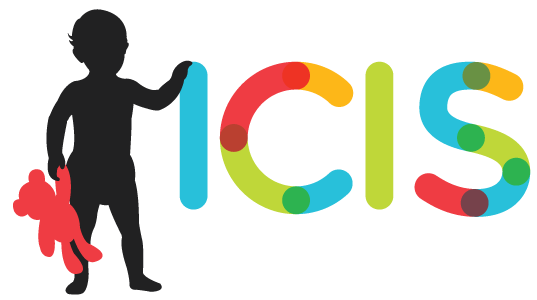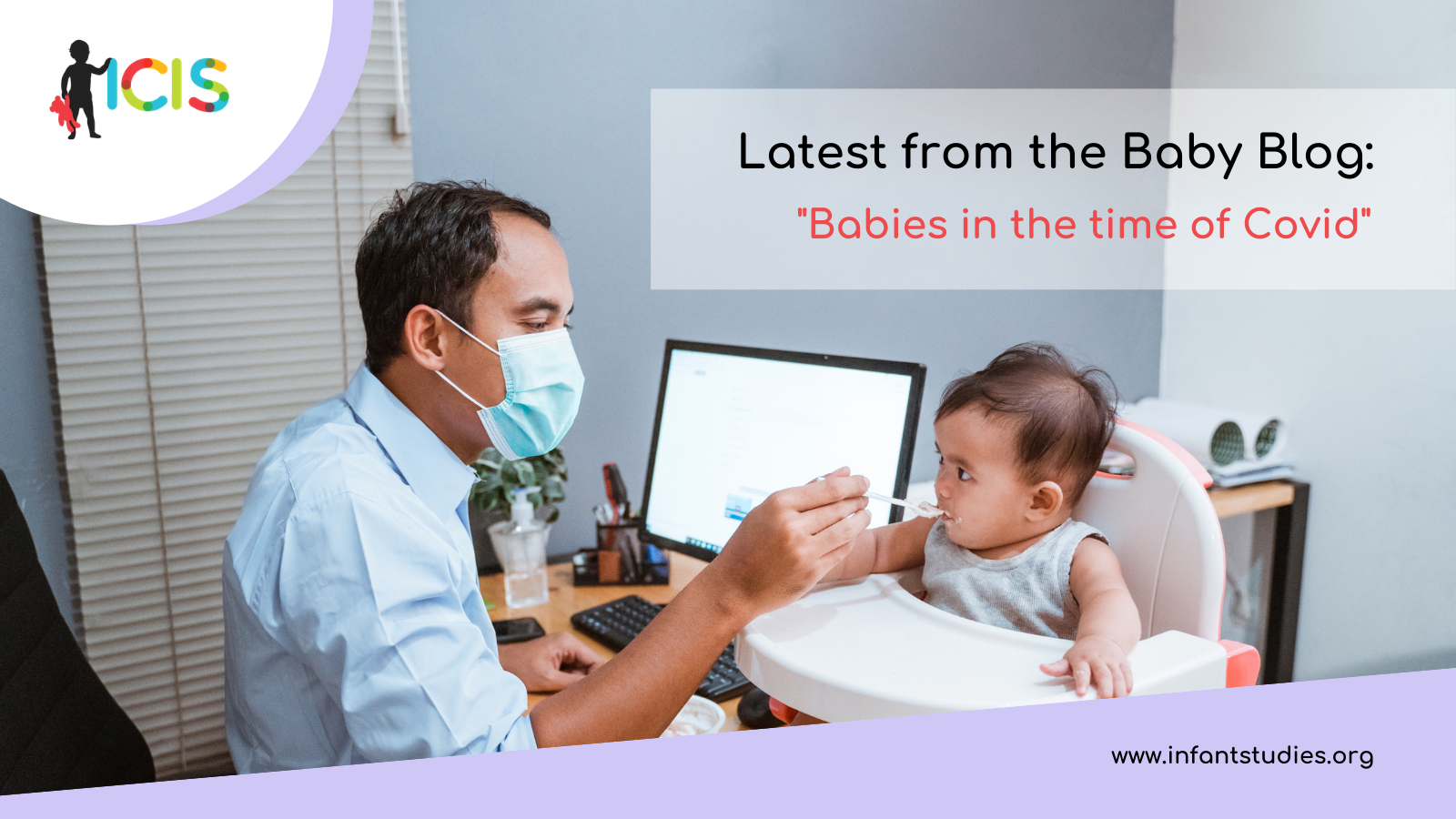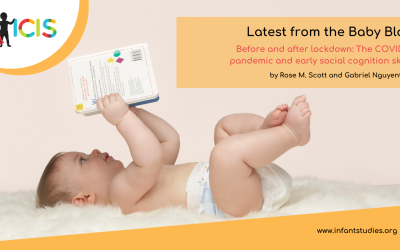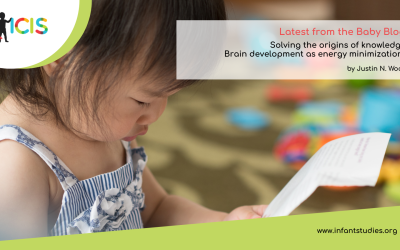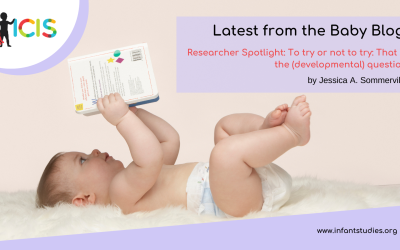by Nancy Aaron Jones, Jillian Hardin, and Joy Longo
Parturition as well as the days and weeks that follow are transitional experiences for families. The interactive “dance” between mothers and infants as well as shared encounters with other family members sets the stage for socio-emotional success and neurodevelopmental progress. Newborns need care and affection! Collectively research has shown that lack or reduced socio-emotional interchanges (e.g. in groups that have illness, depression or other risks) has been shown to negatively affect the infant’s development (Feldman & Eidelman 2009; Hardin et al., 2021; Jones et al. 2004) while opportunities for optimal early socio-interactive experiences can benefit responsiveness as well as stimulate infant brain and behavioral function of mother-infant dyads (Hardin et al., 2020).
The onset of the COVID-19 world-wide pandemic has not only increased levels of maternal stress, depression, and anxiety (Cameron et al., 2020; Fernandes, Canavarro, & Moreira, 2021 ) but has also reduced opportunities for socio-emotional interactions with others. Further, interactive contact and care between mothers and the healthcare professionals who support mothers and their newborns has been impacted and changed by the pandemic (Sweet et al., 2021). So, over the last two years as COVID obstructed the normal delivery of care in health systems, we asked: What is the experience of mothers who delivered an infant in a healthcare setting during COVID-19? Specifically our research questions were:
- how has the pandemic changed social interaction opportunities of families surrounding childbirth and postnatal care? and
- how has the pandemic changed the care and perceived care, delivered by health care professionals in maternity settings?
Collecting and Listening to the Stories of New Mothers and Professionals that Support Birth and Newborn Care during COVID-19
In today’s world, new parents often turn to chat rooms, blogs, and Facebook/Instagram posts, to express parenting joys, distress, and concerns. Parents also may consult websites to fulfill the need for current and cohort-normative social information about infant care practices. In this qualitative analysis (Hsieh & Shannon, 2005) we collected public posts and searched sites online to learn what new parents and maternal-child healthcare professionals were experiencing, what they were concerned about, and what they wanted to convey to others as pivotal in their stories of childbirth and infant care during the COVID-19 pandemic.
Our examination of the narratives focused on topics such as breastfeeding, hospital practices, and other online sites that provided information about care and support practices. Content analysis was performed to arrive at themes.
What DO parents and maternity services practitioners have to say about COVID-era births and babies?
The topics uncovered from the experiences of mothers and maternity services professionals suggest the pandemic influenced this group in a dynamic and novel way. In the early months of the pandemic, the narratives of the birth and postnatal hospital care were negative and included haphazard reactions to the contagious nature of the virus as well as the concern surrounding the serious consequences from the virus. As a consequence there were many procedural changes during birth and postpartum hospital stays, including: the complete or partial barring of father’s attendance at the birth, the family’s reduced or dissuaded ability to visit when bringing the baby home and/or when having to remain in the hospital, the accelerated timing of discharge after delivery, the inability to utilize additional experts in childbirth or infant care (e.g., doulas, midwives, and lactation consultants) and the inability to elicit help of the extended family from childbirth and across the postpartum period.
Upon review of the public posts, four consistent themes emerged in our analysis. The first common theme noted was the alteration of care by professionals to accommodate families. In one instance, a mother indicated “It was very much uncharted waters for everyone. Everyone is walking this line of trying to protect you and the baby, and the protocols are being written in the moment.”
A second theme noted from the narratives was that the main focus was to ensure the safety of mothers and infants during the pandemic, with a healthcare professional stating: ““The recommendation is to limit visitors at this time. . . parents need to screen their visitors and limit them to one or two people at a time…”.
The third, and not unexpected, theme documented across many of the posts was that having a baby during the pandemic produced a significant amount of emotional upheaval.. As one mother noted “Everyone is so sad. Everyone tries to say, ‘Oh, she’s so cute,’ but the conversation turns to coronavirus concerns in two seconds. I feel like I’ve been robbed of the joy that comes with having a baby.'”
Finally, the fourth and final theme we noted was that families were able to successfully adapt to the circumstances and some mothers even reported a potential benefit to the closeness of the family. For example, a healthcare professional stated: “There may also be some good things including more time to be at home to rest and less pressure to be dressed up and doing it all. Your partner may be around more to help.”
Ultimately from this analysis of the narratives, a spectrum of experiences emerged among parents and maternal-child healthcare professionals, including negative as well as some—surprisingly–positive effects on family interactive and psychosocial experiences.
Conclusions: How Does this Inform Families and Professionals for Understanding Development?
Collecting, examining and absorbing the information available in the online comments made by families and maternity services professionals made us acutely aware that there were various responses to COVID-19 across the world and across the spectrum of individual settings (Sweet et al., 2021). The themes uncovered by our analysis did inform and bring attention to the important role of professionals to support mothers during childbirth and during infant postnatal care. The narratives show that both families and healthcare personnel experienced significant emotional and psychosocial effects due to the pandemic but both groups also adjusted their practices to support the mother-infant dyad to keep them safe. There were circumstances where policies were being developed and modified based on new evidence but ultimately, families adapted and were supported as needed (Foye et al., 2021).
Finally, the narratives that were reviewed may have implications for the development of hospital, health care, or social policies. It may be necessary to prepare ourselves and the institutions we’ve established to respond to the needs of mothers and infants by making sure the policies are in place to deal with future pandemics. Our institutions should be prepared to attenuate the negative effects of these crises in families as neurodevelopmental foundations and affiliative bonds leading to attachment are influenced and established at early developmental periods (Diamond et al., 2020: Hardin et al., 2021).
References
Cameron, E. E., Joyce, K. M., Delaquis, C. P., Reynolds, K., Protudjer, J. L. P., & Roos, L. E. (2020). Maternal psychological distress & mental health service use during the COVID-19 pandemic. Journal of Affective Disorders, 276, 765–774. https://doi.org/10.1016/j.jad.2020.07.081
Diamond, R. M., Brown, K. S., & Miranda, J. (2020). Impact of covid-19 on the perinatal period through a biopsychosocial systemic framework. Contemporary Family Therapy, 42(3), 205–216. https://doi.org/10.1007/s10591-020-09544-8
Feldman, R., & Eidelman, A. I. (2009). Biological and environmental initial conditions shape the trajectories of cognitive and social-emotional development across the first years of life. Developmental Science, 12(1), 194–200. https://doi.org/10.1111/j.1467-7687.2008.00761.x
Fernandes, D. V., Canavarro, M. C., & Moreira, H. (2021). Postpartum during COVID‐19 pandemic: Portuguese mothers’ mental health, mindful parenting, and mother–infant bonding. Journal of Clinical Psychology, 77(9), 1997–2010. https://doi.org/10.1002/jclp.23130
Foye, U., Dalton‐Locke, C., Harju‐Seppänen, J., Lane, R., Beames, L., Vera San Juan, N., Johnson, S., & Simpson, A. (2021). How has Covid‐19 affected mental health nurses and the delivery of Mental Health Nursing Care in the UK? results of a mixed‐methods study. Journal of Psychiatric and Mental Health Nursing, 28(2), 126–137. https://doi.org/10.1111/jpm.12745
Hardin, J., Jones, N.A., Mize, K.D., & Platt, M. (2020). Parent-training with Kangaroo Care impacts mother-infant neuroendocrine activity & infant neurophysiological development. Infant Behavior and Development, 58, 101416, https://doi.org/ 10.1016/j.infbeh.2019.101416
Hardin, J., Jones, N.A., Mize, K.D., & Platt, M. (2021). Affectionate touch in the context of breastfeeding and maternal depression influences infant neuro-developmental and temperamental substrates. Neuropsychobiology, 80:158–175. http://dx.doi.org/10.1159/000511604
Jones, N.A., McFall, B.A., & Diego, M.A. (2004). Patterns of brain electrical activity in infants of depressed mothers who breastfeed and bottle feed: the mediating role of infant temperament. Biological Psychology, 67, 103-124. https://doi.org/10.1016/j.biopsycho.2004.03.010
Sweet, L., Bradfield, Z., Vasilevski, V., Wynter, K., Hauck, Y., Kuliukas, L., Homer, C. S. E., Szabo, R. A., & Wilson, A. N. (2021). Becoming a mother in the ‘new’ social world in Australia during the first wave of the COVID-19 pandemic. Midwifery, 98, 102996. https://doi.org/10.1016/j.midw.2021.102996
About the Author

Nancy Aaron Jones
Florida Atlantic University
Nancy Aaron Jones is a Professor of Psychology and Behavioral Neuroscience at Florida Atlantic University and Director of the WAVES Emotion Laboratory. Her research focuses on investigating emotional development from infancy through early childhood, employing neuropsychological and psychophysiological perspectives. Our studies examine individual differences in temperament as well as family and environmental experiences that may promote (or attenuate) healthy psychosocial outcomes.

Jillian Hardin
Florida Atlantic University
Jillian Hardin is a Professor of Research and Statistics at Alliant International University—California School of Professional Psychology. Her graduate research focused on examining the effects of extended skin-to-skin contact on infant neurophysiological development. She continues to collaborate on developmental research projects at the FAU’s WAVES Emotion Lab.

Joy Longo
Christine E. Lynn College of Nursing
Joy Longo is an Associate Professor in the Christine E. Lynn College of Nursing at Florida Atlantic University. Prior to her current academic position, she worked as a registered nurse in neonatal intensive care units for many years. Her research interests include the impact of work environments on patient safety.
